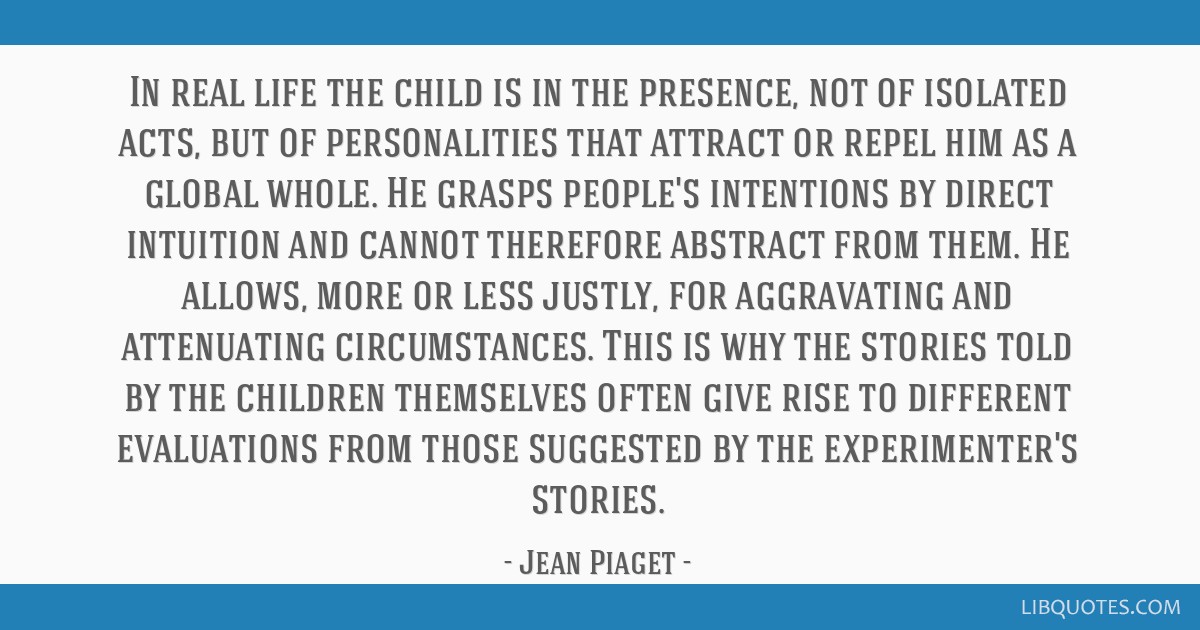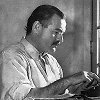In real life the child is in the presence, not of isolated acts, but of personalities that attract or repel him as a global whole. He grasps people's intentions by direct intuition and cannot therefore abstract from them. He allows, more or less justly, for aggravating and attenuating circumstances. This is why the stories told by the children themselves often give rise to different evaluations from those suggested by the experimenter's stories.
Ch. 2 : Adult Constraint and Moral Realism, § 1 : The Method - The Moral Judgment of the Child (1932)























